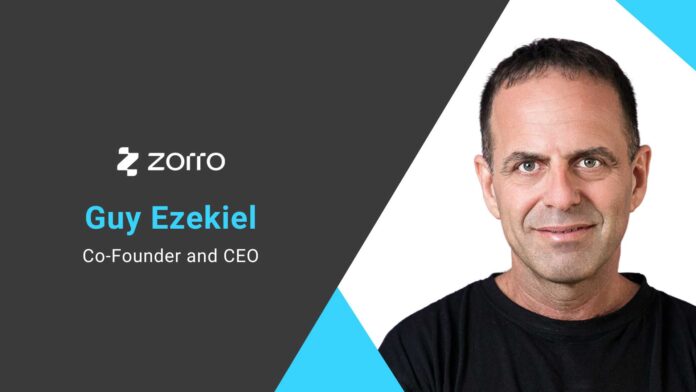- For leaders unfamiliar with it, what exactly is ICHRA and why is it emerging as such a compelling alternative?
Individual Coverage Health Reimbursement Arrangements (ICHRA) are a modern way for employers to provide healthcare benefits. Introduced in 2020, ICHRA allows employers to offer a fixed monthly allowance to employees, who can then use this money to purchase individual health plans that best fit their needs.
What makes it compelling is that it democratizes health insurance: employers gain predictable, cost-controlled benefits, while employees access a wide range of ACA-compliant plans, giving them real choice and flexibility. For perhaps the first time, companies can control costs without compromising quality and deliver competitive benefits to a diverse workforce, and employees can choose coverage that aligns with their lives—no more one-size-fits-all solutions.
- How do defined-contribution health benefits shift the balance of control between employers and employees?
Historically, health insurance plans have been chosen, managed, and owned by the employer. Defined contribution models like ICHRA shift the balance of control by giving employees ownership and autonomy over their healthcare benefits. Instead of being confined to one-size-fits-all group plans chosen by their employer, employees with ICHRA can select the individual health insurance plan that suits their health needs, preferences, and budget.
Employers, on the other hand, are no longer at the mercy of variable claims and fluctuating pricing. Instead, they retain control over their costs through a fixed contribution amount. This decentralizes decision-making, shifts risk away from employers, and creates a workforce that feels empowered, supported, and engaged.
- What kind of insights can businesses gain from this tech-first approach that weren’t possible before?
Tech-enabled benefits transform a static line item into a dynamic strategic lever. AI and real-time data allow employers to anticipate costs, model contribution strategies, and understand what benefits are truly valuable. Beyond administrative efficiency, it provides a 360° view of workforce needs, enabling companies to design holistic, personalized benefits strategies that align with employee preferences, optimize engagement, and reduce waste.
In essence, it’s not just about cost control—it’s about understanding the intersection of people, behavior, and health spend, and using that insight to build benefits programs that drive long-term organizational and employee value.
- From the employee perspective, how does choice and flexibility actually show up in their healthcare experience?
Choice and flexibility mean employees can select plans that fit their unique health needs—keeping preferred doctors, covering necessary medications, and managing budgets effectively.
For distributed or remote workforces, this is especially impactful: employees can access local plans that meet their needs, not just the plans offered to the “average” worker. When paired with AI-driven guidance from platforms like Zorro, employees receive tailored recommendations based on their health profile, preferences, and risk tolerance—making benefits intuitive, personalized, and empowering.
- For employers sitting on the fence, what’s the one question they should be asking about their current benefits strategy?
In my opinion, the key question employers should be asking themselves is: “Is our current benefits strategy sustainable and adaptable for the long-term?”
Employers are facing consistently rising premiums, limited plan options, and disengagement from an increasingly diverse and distributed workforce—not to mention regulatory changes that impact companies nationwide.
- What trends do you see shaping the benefits landscape over the next five years as adoption grows?
- Increasingly sophisticated benefits strategies anchored on ICHRA: Over the next five years, I expect ICHRA to become the foundation for more sophisticated benefits strategies. Companies will move beyond viewing ICHRA as just a stop-loss or cost-control tool, instead leveraging its flexibility to design holistic, adaptive programs that meet the diverse needs of their workforce.
- Advanced AI will drive decisions and support: Cutting-edge Insurtech is already reshaping the benefits landscape. In the next five years, AI will become central to ICHRA implementation and administration, allowing brokers and employers to more accurately forecast costs, develop tailored contribution strategies, and personalize the employee experience at scale. Benefits will evolve from a static line item into a dynamic lever for engagement, retention, and workforce optimization.
- Focus on health-to-wealth integration: Finally, we’ll see growing attention on the health-to-wealth journey, catalyzed by ICHRA, which gives employees greater control over one of their largest financial investments—their health. As employees gain tools to manage healthcare costs, they can view these decisions as part of their broader financial well-being, connecting benefits to personal goals such as savings, retirement planning, and overall wealth-building. The result is a more empowered, engaged, and resilient workforce.
| About Guy Ezekiel | About Zorro |
| Guy Ezekiel is Co-founder and CEO of Zorro, the leading ICHRA administration platform. He has spent decades working across healthcare and technology, building solutions that bridge innovation with accessibility. Under his leadership, Zorro has become a pioneer in democratizing healthcare benefits for employers and employees alike. |
Zorro is an AI-powered insurtech platform leveraging ICHRA (Individual Coverage Health Reimbursement Arrangements) to revolutionize how employers offer healthcare benefits. By combining data, AI, and user-first design, Zorro empowers companies to control costs while giving employees true choice and flexibility in their healthcare. |
Stay ahead of the curve. Subscribe to HRTechEdge for your competitive edge.







